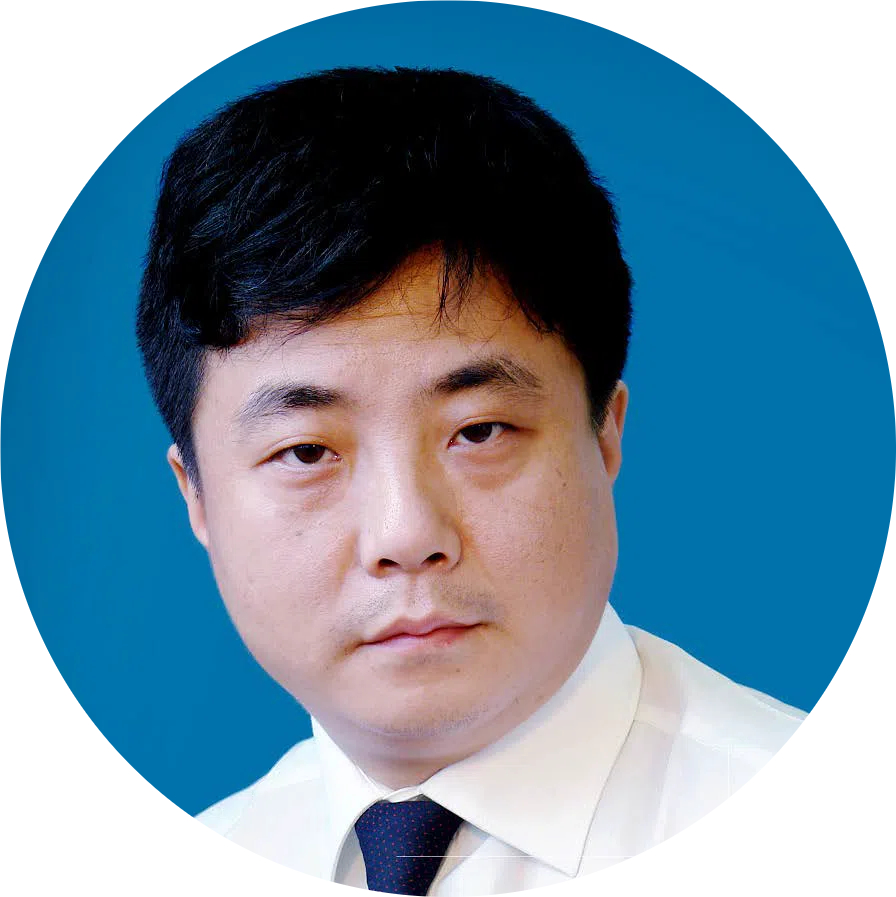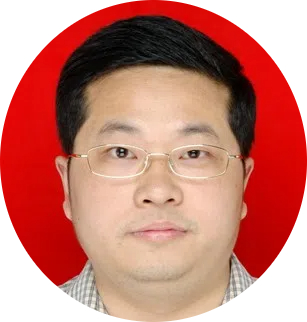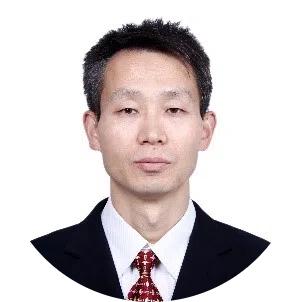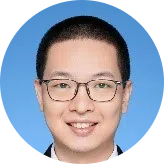Technical Symposia 11
Blind Signal Processing
1. Symposium Chairs:
Prof. Ping Wei, National Key Laboratory on
Blind Signal Processing, University of Electronic
Science and Technology of China, China
Prof. Tianqi Zhang, Chongqing University of Posts
and Telecommunications, China
Prof. Xiaode Lyu, Aerospace Information Research
Institute, Chinese Academy of Sciences, China
Assoc. Prof. Lin Gao, University of Electronic
Science and Technology of China, China
2. Topics:
Potential topics of interest include but are not
limited to:
▪ Blind Multidimensional Signal Processing
▪ Blind Graph Signal Processing
▪ Radio Mapping
▪ Blind Channel Estimation and Identification
▪ Noncooperative Source Detection, Localization and
Technical Symposiaing
▪ Source Feature Extraction and Recognition
▪ Noncooperative Distributed Signal Processing and
Information Fusion
▪ Blind Signal Separation
▪ Blind Coding Recognition and Decoding
▪ AI Methods for Blind Signal Processing
3. Introduction of Symposium Chairs
 Prof.
Ping Wei, National Key
Laboratory on Blind Signal Processing, University of
Electronic Science and Technology of China, China
Prof.
Ping Wei, National Key
Laboratory on Blind Signal Processing, University of
Electronic Science and Technology of China, China
Ping Wei received the B.S. and M.S. degrees in
electronic engineering from the Beijing Institute of
Technology, Beijing, China, in 1986 and 1989,
respectively, and the Ph.D. degree in communication
and electronic system from the University of
Electronic Science and Technology of China (UESTC),
Chengdu, China, in 1996. He is currently a Professor
with the School of Information and Communication
Engineering, UESTC. He has published more than 100
peer reviewed papers and he served as guest editors
for the Electronics. His current research interests
include multitarget tracking, information fusion,
and array signal processing.
 Prof.
Tianqi Zhang, Chongqing University of Posts and
Telecommunications, China
Prof.
Tianqi Zhang, Chongqing University of Posts and
Telecommunications, China
Zhang Tianqi, male, born in 1971, received a
bachelor's degree in applied physics from Southwest
Normal University (now Southwest University) in
1994, and a master's degree in communications and
electronic systems from the University of Electronic
Science and Technology of China in 1997. He worked
in Tianjin NEC Company and Guangdong TCL Company
from 1997 to 1999, majors in switch testing,
communication terminal development work, received a
doctorate degree in circuit and systems from the
University of Electronic Science and Technology of
China in 2003, and a postdoctoral degree in
information and communication engineering from
Tsinghua University in 2005. Since 2005, he has been
engaged in teaching and research work in the School
of Communication and Information Engineering,
Chongqing University of Posts and Telecommunications
(CQUPT). Currently, he is a professor, doctoral
tutor, signal and information processing discipline
leader of Chongqing University of Posts and
Telecommunications, and a doctoral supervisor of
signal and information processing discipline at the
University of Electronic Science and Technology of
China. Director of the Chongqing Key Laboratory of
Signal and Information Processing, Chongqing
University of Posts and Telecommunications, was
selected into the "Chongqing University Outstanding
Talent Funding Program", the "New Century
Outstanding Talent Program of the Ministry of
Education" and the "Chongqing Outstanding Youth
Fund" program. A total of more than 400 academic
papers have been published, of which more than 250
papers have been searched by the SCI/EI database, 42
patents have been applied for (30 authorized), 1
textbook and 3 monographs have been published, and
more than 30 public academic exchange reports have
been held. Presided over and participated in the
National Natural Science Foundation of China, the
New Century Excellent Talents Program Fund of the
Ministry of Education, the second batch of Chongqing
Excellent Talents Funding Program for Higher
Education, Chongqing Natural Science Foundation,
Chongqing Key Laboratory Construction Program,
Chongqing University of Posts and Telecommunications
Research Fund He has waited for more than 20
scientific research topics and won 1 second prize of
Chongqing Natural Science. He has long-term
systematic research on signal and information blind
processing, and has trained more than 100 graduate
students.
 Prof. Xiaode Lyu,
Aerospace Information Research Institute (AIR), Chinese Academy of Sciences, China
Prof. Xiaode Lyu,
Aerospace Information Research Institute (AIR), Chinese Academy of Sciences, China
Xiaode Lyu received his BEng in Electrical
Engineering from Hebei University of Technology,
Tianjin, in 1991, and his Ph.D. in Electrical
Engineering from Xi'an Jiaotong University (XJTU),
Xi'an, in 1997. In 1998, he conducted postdoctoral
research in the Department of Electronic Engineering
at Beijing Institute of Technology (BIT). In 2000,
he joined the Aerospace Information Research
Institute (AIR), Chinese Academy of Sciences (CAS),
formerly known as the Institute of Electronics.
Since 2005, he has been a Professor at AIR. As a
Principal Investigator, he has completed several
important projects. He has authored more than 50
papers, been granted 10 patents, and supervised over
20 postgraduate students. Additionally, he has
authored two monographs on radar and Electromagnetic
Compatibility (EMC). Lyu is a Senior Member of the
IEEE and has been awarded the First Prize of the
National Science and Technology Progress Award and
the Second Prize of the National Defense Science and
Technology Progress Award. His research interests
encompass radar signal processing, passive radar
system technology, phased array antenna and applied
electromagnetism.
 Assoc. Prof. Lin Gao,
University of Electronic Science and Technology of
China, China
Assoc. Prof. Lin Gao,
University of Electronic Science and Technology of
China, China
Assoc. Prof. Lin Gao received the B.S., M.S. and
Ph.D. degrees all in information and communication
engineering from the University of Electronic
Science and Technology of China (UESTC). From 2018
to 2020, he was a postdoc research fellow at the
Department of Information Engineering of the
University of Florence. From 2021 to 2023 he was a
lecturer with the School of Information and
Communication Engineering of UESTC, where he is now
an associate professor. He served as the guest
editor for special issues on Remote Sensing,
Electronics, Applied Sciences, and he is a TPC
member of the FUSION conference. His research
interests include statistical signal processing,
source localization, multi-sensor multi-target
Technical Symposiaing, information fusion and multi-vehicle SLAM.
